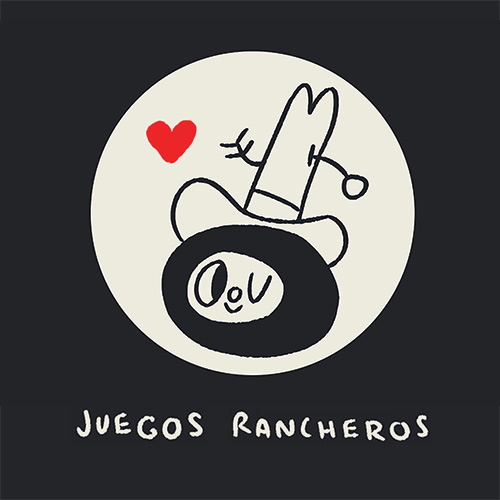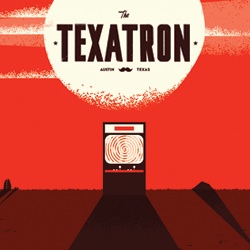OF WORDS AND WOOL: THE MAKING OF DENKI’S XBLA WORD-BATTLER QUARREL
I have a favourite new gaming peripheral. It’s 16 bits of mounting card, 48 four-square bits of Lego, the men from 14 games of Ludo, 100 tiddly-winks, three marker pens, some wipe-clean grids, a laptop, 280 pounds of human flesh and a roll of kitchen towel.
This peripheral is otherwise known as ‘playing the board-game prototype of Quarrel with Gary and David from Denki’. Denki you ought to know from the majestic Denki Blocks, and Gary Penn and David Thomson (pictured top, L to R) lead the team there who are currently turning that prototype into the upcoming Xbox Live Arcade version of the same, which you may well have first read about on this fine website.
The most reductive way to explain it is as a cross between Dice Wars and Scrabble: up to four players compete to dominate a map divided into a dozen or so different territories. Each player’s men are randomly scattered in squads across the map, occupying a share of the territories. Each turn, a player can have a squad attack any adjacent territory, triggering a two-player battle – against the clock – to find the highest scoring word within the same eight-letter anagram.
What makes this harder is that the total number of letters you can use is the number of men you have on that territory: so if you’ve had your squad of four attack a neighbouring squad of six, your opponent has two more letters and hundreds of thousands of more potential words to play with. It’s a highly narcotic mix of sleek strategy and good wordplay, as I found out when I spent a very happy day doing a spot of consultancy on it at the Denki studio last week.
But although I was supposed to be spending the day thinking about Quarrel, I ended up spending a lot of it thinking about the value of physical prototyping. On one of my own projects at the moment – a two-player online co-op confection – we’re at the paper prototyping stage. Paper prototyping online co-op, I can exclusively reveal, involves a great deal of running up and down corridors with post-it notes stuck to your chest. So arriving at Denki and discovering they had board-game prototyped Quarrel got me thinking, and rapidly got us playing.
I’m not being a smart-arse – well, I’m not just being a smart-arse – by calling the board game a peripheral for the videogame. I learned more about the videogame by playing the board game than I would ever have imagined. It made me realise more than ever that videogames are duets. The game does some of the playing, and the player does some of the playing, and together that make something awesome happen. The challenge is in knowing how to divide up the tasks so the game does the bit it’s good at doing and the player does the bit he’s enthusiastic about doing.
Board-gaming Quarrel makes you keenly aware of the game as task list. Someone needs to design a map and then someone needs to build it. Someone needs to assign player colours and distribute the men and determine turn order. Someone needs to decide who to attack. Someone needs to produce an anagram which is good for finding words in. Someone needs to remember which letters are worth which points. Someone needs to run a timer. Someone needs to find some words in the anagram. Someone needs to decide which of those words has the best chance to win and submit it Someone needs to vet if players’ words are in the dictionary or not. Someone needs to tot up the scores and decide who won and assign points accordingly. Someone needs to remove defeated men and move victorious men. Someone needs to track the fact that a combo has started, and on and on it goes. What the board game lets you test is which of these tasks is fun for meat-players to do and which is fun for the computer.
It also forces you to think of the three kinds of information that there are in games: the known, the unknown, and the magically woolly. Game designers spend a lot of time working with the known and the unknown. A game design truism is that players should be able to expect predictable outcomes from their inputs. Knowing what’s going to happen when you press a button is key to games feeling consistent and immediate. Games that hide their workings are usually criticised for feeling unfair, random or glitchy. On the flip side, games need unknowns. They need the excitement of hitting a crate and not knowing what you’re going to get, of opening a chest to reveal a mysterious golden glow.
In between, though, is the magical wool, which is the stuff the player sort of knows but sort of doesn’t. Disgaea was the game which first taught me about magical wool. Hit someone with a sword in Disgaea, and it triggers a task list that makes Quarrel‘s look like the instruction set for how to eat a marshmallow (Step 1. Eat it).
Dozens of little calculations and combo triggers have to be done, all of which the player knows about, and all of which the player could do for themselves with a big enough sheet of paper and a calculator. But they key thing is they haven’t got time – and certainly not the patience – to do them. So they press the button to hit a thing, and then something happens which is pretty much like what they expected, but a bit bigger or a bit smaller or a bit sparklier or a bit ouchier and they get to feel surprised and clever all at the same time, because they were basically right but not totally right.
Quarrel, similarly, has its own little bit of magic wool. One of my first criticisms of the videogame was that it doesn’t have a facility to add up the total score of words as you try to make them, so you can see which of your options has the best score before you submit it. It seemed like a beneficial feature to add, but Gary shook his head wisely as soon as I brought it up, and I could see why as soon as I played the board game. There’s nothing to stop you doing the mental arithmetic yourself of course – well, nothing more than the increasingly deafening countdown clock and the pressure of your opponent – but the reality is that you don’t. You roughly gauge rather than accurately count, and it means that there’s a fantastic moment of reveal, when you find out if ‘gusher’ beats ‘sorghum’ which wouldn’t be there if you’d seen the sum all along.
The other thing I learned at Denki, though, was that ‘magic wool’ is a rubbish name for what I’m talking about. Magic is as insidious and unhelpful a word as ‘fun’ – always happy to slip into a sentence and save you from having to articulate with any kind of precision what you actually mean. Penn’s design methodology, honed over literally hundreds of games over the last fifteen years, does a good job of being more specific.
For him, the hallmarks of a good game come through its feel, and through the way it proves itself to be alive, dramatic and convenient to its players, and through the twists it provides to conventional expectations. Many happy hours can be (and indeed were) spent plumbing the depths of what each of those five principles means in practice, but I think my magic wool translates into the point where Denki ‘dramatic’ meets Denki ‘alive’. It’s the vital spark in the gaming machine which gives out a tiny little bit more than you put in. And, much as I loved playing it, and learned a lot from it, it’s exactly the thing that board game Quarrel could never deliver.
See more posts about: Denki, Offworld Originals, Xbox 360






